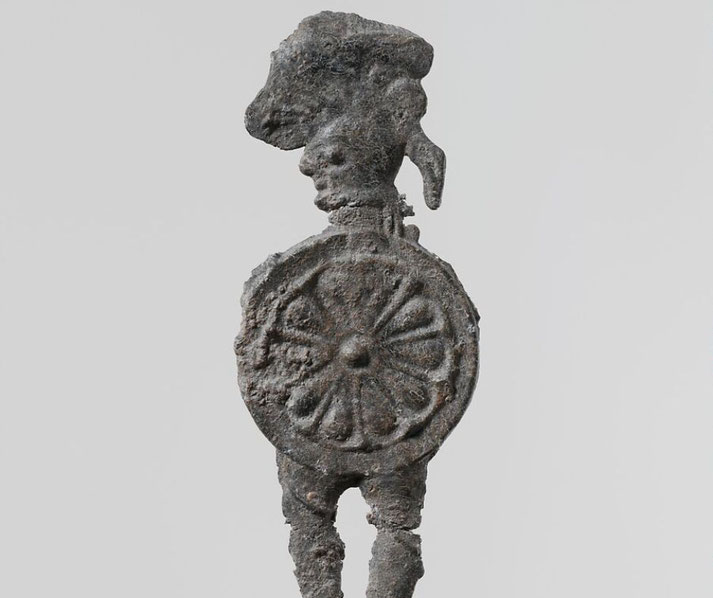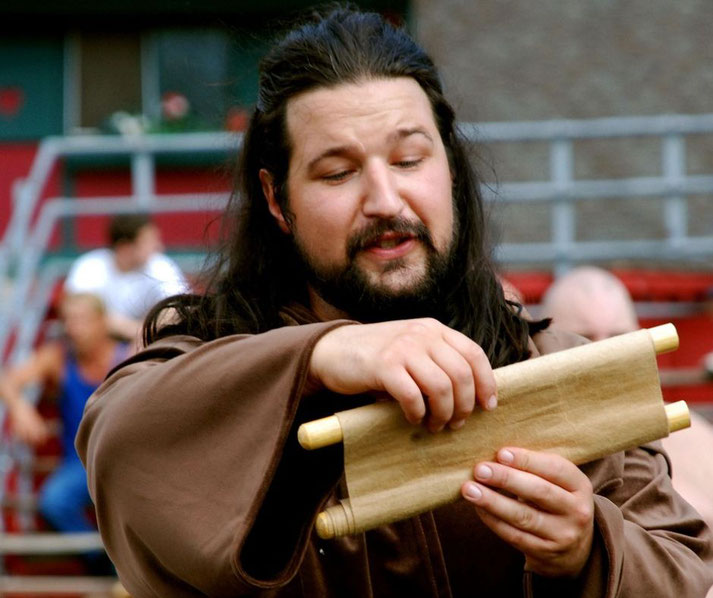Tyrtaeus: The ancient poet who led Sparta’s army to greatness

In the middle of the 7th century BC, the ancient Greek city-state of Sparta was engulfed in the Second Messenian War. It would become a pivotal conflict that would define Sparta’s future military and social structure.
It was at this time that a poet named Tyrtaeus emerged. His poetry thundered through the ranks of the Spartan warriors and, as odd as it seems to modern readers, his verses created a framework for Spartan ideology that would last for centuries.
This was a rare moment in history when art and militarism intertwined to forge a fierce warrior culture.
Why was Sparta at war?
The Second Messenian War, which lasted from around 685 to 668 BC, was a decisive moment for the development of the Spartan state.
The Spartans had launched the war in the neighbouring region of Messenia to quell revolts by the helots (subjugated Messenians) who had been enslaved at the end of the First Messenian War in 724 BC.
However, the war was not going in Sparta’s favor and they had lost some key battles.
Defeat was a real threat. If something did not change, the famous image of the undefeatable Spartans would never come to be.

At this crucial moment, Tyrtaeus stepped onto the scene. Where he came from is still not entirely clear.
Various ancient sources suggest that he might have been born either in Sparta or Athens.
One ancient account suggests he was sent to Sparta as a gift from Athens, following an oracle's advice to offer their second-best man to aid in the war.
Regardless of where he originated, Tyrtaeus arrived in Sparta at just the right time.
How did Tyrtaeus help Sparta?
At the moment of his arrival in Sparta, the city was in desperate need of moral reinforcement.
Relying on the only talent he had, Tyrtaeus began writing a series of poems that could be performed as songs.
More specifically, they were designed to be battle songs: poetry that could be sung by soldiers as they marched into battle.
Tyrtaeus cleverly combined a powerful marching beat with inspirational words that mentally prepared the soldiers for the fighting to come.
As a result, his songs primarily comprise elegiac couplets, which were a poetic form that consists of alternating lines of dactylic hexameter and pentameter.
This form was well-suited for the rhythm and discipline of martial music, helpful for the cadence of marching.
The lyrics called on the men to stand firm in their resolve and trust their compatriots.
Moreover, Tyrtaeus' works often encouraged Spartans to embrace death in battle as a noble end.
His exhortations helped maintain military discipline and cohesion, particularly after setbacks in battle.
This was vital for maintaining Spartan morale and persistence during long and brutal campaigns.
At its core, the songs highlighted the ideals of bravery and self-sacrifice for the good of Sparta.
As a result, he had inadvertently crafted an enduring image of the ideal Spartan warrior.

How the songs helped define the Spartan mindset
Among Tyrtaeus’ most famous songs is the Eunomia. Curiously, it focused more on social order than on battle preparation.
The poem extols the importance of law and justice in maintaining the stability and superiority of the Spartan state.
These verses became crucial for reinforcing the civic duties of Spartan citizens.
Once more, he had begun to articulate a vision of Spartan society that emphasized discipline, endurance, and loyalty.
The popularity of his work quickly permeated the martial culture that defined the city-state.
Tyrtaeus' poetry effectively solidified the militaristic culture that would become synonymous with Spartan identity.
It even became integral to the training and indoctrination of the younger generations of Spartan soldiers.
Through this systematic incorporation into the agoge, or the Spartan educational system, his influence permeated the core of Spartan identity.
The most powerful themes of Tyrtaeus’ songs
A number of complex ideas that became central to later Greek history became well-developed for the first time in the lyrics of Tyrtaeus.
In particular, he championed the concept of areté, or ‘excellence’. In the Spartan context it was closely tied to martial valor and unwavering loyalty to the state.
This elevated both the physical prowess required for battle and also moral strength and communal responsibility.
His exhortations pushed Spartans to fulfill their role as citizens and warriors. It showed that their individual honor was inseparable from their duty to Sparta.
Furthermore, Tyrtaeus stressed the importance of eunomia, a term referring to good order and governance.
This important principle struck a chord with the Spartans, where discipline and obedience to laws were held as paramount virtues.
After the war, little is documented about the fate of Tyrtaeus. Unfortunately, historical sources primarily focus on his contributions during the war and his impact on Spartan society rather than on personal details such as his death.
From what is recorded, it appears that after fulfilling his role as a martial poet, Tyrtaeus' presence fades from the historical texts.
Ultimately, however, Tyrtaeus became one of the most valuable proponents of Sparta’s ethical foundations.
What do you need help with?
Download ready-to-use digital learning resources
Copyright © History Skills 2014-2025.
Contact via email
With the exception of links to external sites, some historical sources and extracts from specific publications, all content on this website is copyrighted by History Skills. This content may not be copied, republished or redistributed without written permission from the website creator. Please use the Contact page to obtain relevant permission.





